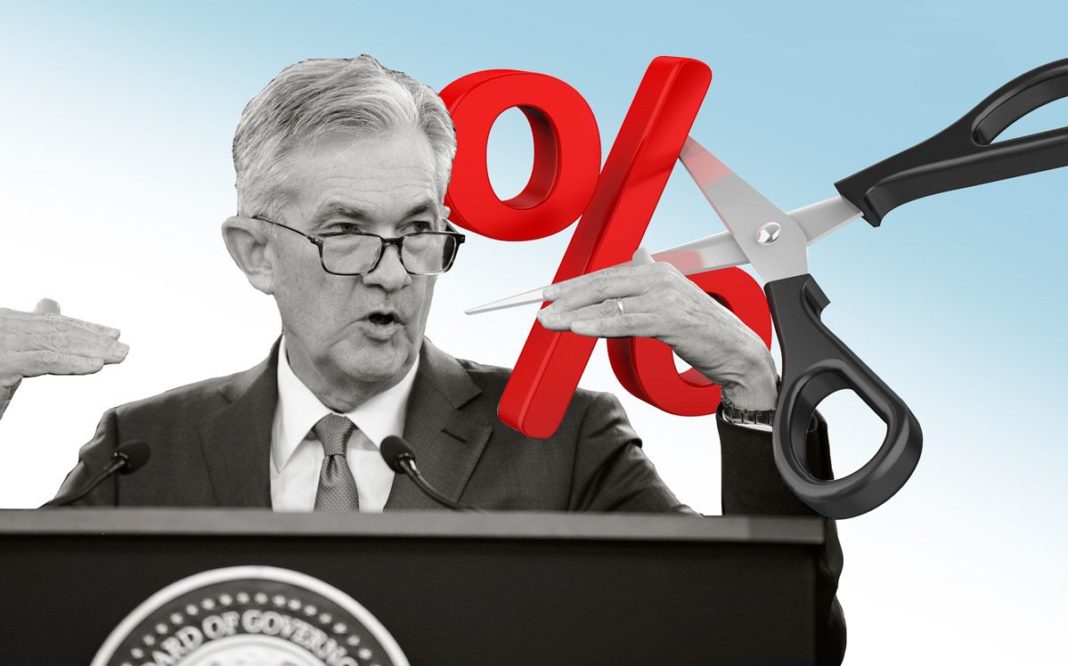MARKET PERSPECTIVE
By J Mulraj
Sep 14-20, 2024
Powell cuts interest rates by 50 bips
Unlike Mark Antony’s description of Brutus’ stabbing of his friend Julius Caeser as being ‘the unkindest cut of all’, Fed Chair, Jerome Powell’s interest rate cut by 50 bips (half a percent), more than the expected 25, was the kindest cut of all.
That, though did not please the US Stockmarket, as it ought to have. The S&P 500 closed on Sep 18, the day it was announced, slightly below the previous closing, albeit it recovered the next day and hit a record high.
Jerome Powell, Chairman, US Fed, says he is confident that “strength in the labour market could be maintained in the context of moderate growth, and inflation moving sustainably down to 2%”. But he was not confident enough in July to start cutting rates.
To be confident, the ‘data’ on which he depends ought to be reliable, right? The most important ‘data’ revealed in between both meetings was a disclosure by the Bureau of Labor Statistics. It confessed, on August 20, that job growth up to March 2024 needed to be revised downwards by a whopping 818,000 jobs, than what it had earlier reported. Surely this huge revision of ‘data’ for a ‘data driven’ organization cannot be the foundation of its confidence?
This leads to another thought. If the Stockmarket closed slightly down after a 5O bips cut, how would it have reacted to a lower one? Say 25 bips, or perhaps no cut at all? It may have collapsed, and that would certainly have dented the incumbent, Kamala Harris’s, prospects badly. She would doubtless describe the 0.5% cut as the kindest cut of all.
Lower rates would help the heavily indebted US Government; annual interest cost war running at an unsustainable $ 1 trillion annual rate. It will also ease debt servicing for small business owners, hopefully averting more closures, which were endangering owners of commercial real estate (CRE). That, in turn, would avert a wider crisis amongst community banks, lenders to CRE. So, the cut would be called benign by them all.
Legacy US automakers, Ford, GM, Stellantis, have been shockingly myopic in not preparing for the challenge to their ICE (Internal Combustion Engine) vehicles business from EVs (electric vehicles). So has the Government of Biden. In Aug ‘21 he called a meeting of large automakers to promote the EV industry. But he did not invite Tesla, the then world’s largest EV maker, nor were Toyota (which developed Prius, the first hybrid), Nissan (the pioneer of EVs), or Honda (the first automaker to promise a complete phaseout of its ICEs). The competition to ICE by EVs has been present for a long time, so it’s surprising that Ford CEO Jim Farley said, last week, that he was surprised at the ‘speed’ with which Chinese EV automakers captured the EU market. He called them an existential threat to other automakers. It is true that Chinese Government subsidises EVs (so does USA and EU) but labour standards and environmental standards are lighter in China, giving them an edge. Nonetheless, Chinese automakers have, through productivity gains, captive raw materials and lower wage costs, been able to significantly lower the cost of their EVs. In July, the EU slapped tariffs, up to 37.6%, on Chinese EVs.
It seems that Tesla was not invited by Biden to the Aug ‘21 meeting meant to encourage the growth of the EV industry, as it wasn’t unionized. The big three automakers were, hence got the invite. Ironically, the UAW (United Auto Workers) Union called a simultaneous strike in all 3 unionised car companies in September ‘23, which lasted 45 days and resulted in a substantial wage hike for workers.
The big three, not having the foresight to develop EVs, and faced with higher wages (far higher than Chinese automakers) especially after the crippling UAW strike, are in dire straits (not the band). The Big Three may seek, like the band, ‘Money For Nothing’.
Germany’s largest automaker, Volkswagen, is planning to shut its German plants, employing 300,000 workers, to save $11 b. This is the consequence of another myopic political decision, initiated by Biden, and followed by German Chancellor Olaf Scholz, to stop buying cheap Russian energy! The aim of the collective west in trying to give Ukraine NATO membership was to weaken Russia. It has ended up, instead, by enfeebling Germany, Europe’s powerhouse, as evidenced by the Volkswagen decision to shut its German car factories.
Brazil is experiencing wildfires (more than 5000 fires in a single day), leading to the worst drought in its history. In 2022 about 4000 sq. kms of Amazon forest land had been cleared, under President Bolsanaro, to plant soy crops, to export to China, to feed its pigs, to produce pork for human consumption. Net-net the result of leadership myopia is that the environment has been irreversibly harmed, Chinese pigs fattened and Brazilian poor starved!
Has the global polity gone completely mad?
Indian goods exports declined by 9% in August, and its trade deficit widened to $ 30 b. India’s polity has been woefully remiss in tackling corruption, and an abysmally slow judicial system with a backlog of 51 million cases. Studies show that pendency of cases cost 1.5%-2% of GDP. Judicial delays, combined with corruption, deter FDI in India, something that could help arrest the drop in exports.
Last week the BSE Sensex ended at 84544 for a weekly gain of 1654 points.
With the US interest rate cycle having turned downwards, and with crude oil prices tamed (thanks largely to reduced fossil fuel demand from China after wide EV adoption) investor focus will now be on Nov 5, 2024, when results of the popular vote of the US elections will be announced.
With barbarians at the gate will the US voters vote for a leader who would welcome them in, or one who would fight to protect the border? That’s the 111 trillion dollar question. Incidentally, $111 trillion is global market cap.
Picture Source: https://therealdeal.com/national/2019/09/18/fed-drops-target-interest-rate-signaling-caution-ahead-for-real-estate-investors/
Comments may be sent to jmulraj@asiaconverge.com










































COMMENTS